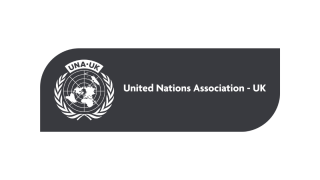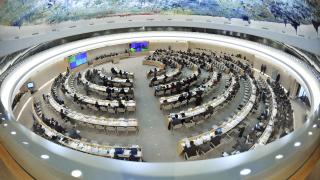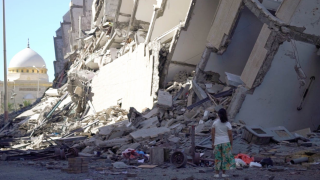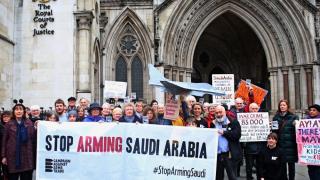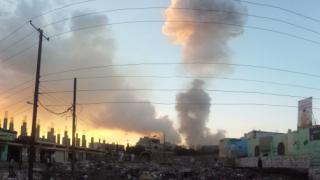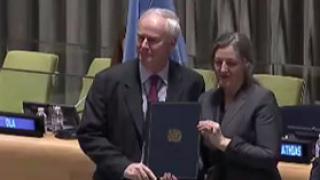
Today, the UK ratified the UN Arms Trade Treaty (ATT), the first internationally-binding agreement to regulate the $85bn annual trade in arms and ammunition. More than 520,000 people are killed every year by armed violence and millions more live in fear of rape, assault and displacement caused by weapons getting into the wrong hands.
The UK was joined by a host of other EU countries who ratified today, on what is the first anniversary of the adoption of the Treaty at the UN General Assembly. These countries included five of the world’s top 10 exporters: France, Germany, Italy, Spain and the UK, bringing the total ratifications up to 31. The Treaty will enter into force 90 days after it has been ratified by 50 states – expected later this year.
Whilst this is an important first step, it is the robust implementation of the ATT which stands to bring about the reduction in armed violence we all want to see. Major exporters, like the UK, now need to focus on implementing the Treaty to a high standard and ensuring their own export practices are in line with the letter and the spirit of the Treaty.
Last year, a report released by the Committees on Arms Export Controls revealed that the UK Government has granted export licenses for strategic controlled goods to 25 of the 27 states listed by the Foreign & Commonwealth Office as “countries of human rights concern”. Behaviour like this is at risk of undermining the objectives of the Arms Trade Treaty and raises concerns about the UK Government's commitment to ethical arms export practices.
Furthermore, in July 2013 the Secretary of State for the Department for Business, Innovation and Skills, announced changes to the UK’s reporting requirements regarding arms exports, effective from 2014. The result will be that, from the public record, it will be impossible to distinguish between an export of technical equipment and a consignment of heavy weaponry, for example. These changes constitute a significant scaling back of previous commitments to improve transparency with regard to open licences, with worrying implications for the ability of Government to keep track of actual arms exports and for Parliament and civil society to scrutinise Government decision-making.
If the ATT is to reduce the human suffering caused by the current, under-regulated international arms trade, states like the UK must lead by example and ensure they adopt a progressive interpretation of the Treaty, including on public reporting and on exporting to states with a history of human rights violations.
UNA-UK is a member of the Control Arms coalition, the global civil society network that spearheaded the decade-long campaign for this Treaty.
Click here for more on UNA-UK's Campaign for a Strong Arms Trade Treaty
Arms Trade Treaty - key facts
- On 2 April 2013 the ATT was adopted by majority vote at the General Assembly. Three States voted against – Iran, Syria and North Korea, 156 states voted for and 22 abstained.
- The ATT will come into force 90 days after the 50th signatory state deposits its instrument of ratification with the UN.
- France, Germany, Italy, Spain and the UK are listed as five of the top 10 global arms exporters 2008 – 2012 by the Stockholm International Peace Institute (SPIRI).
- By signing the ATT states commit to:
- Properly regulate all transfers of conventional arms, ammunition or parts and components.
- Ban the export of conventional arms, ammunition, or parts and components where there is knowledge the weapons would be used to perpetrate war crimes, genocide, attacks against civilians, and other grave breaches of the Geneva Conventions.
- Comprehensively assess the risk of any transfer to contribute to or undermine peace and security or to facilitate serious violations of international human rights or humanitarian law, terrorism, organised crime, gender-based violence or violence against women and children.
- Consider the risk that arms might be re-directed from the original recipient to another user – known as “diversion”.
- Submit annual reports on its international transfers and national implementation activities to the other States Parties, improving transparency in the global arms trade.

